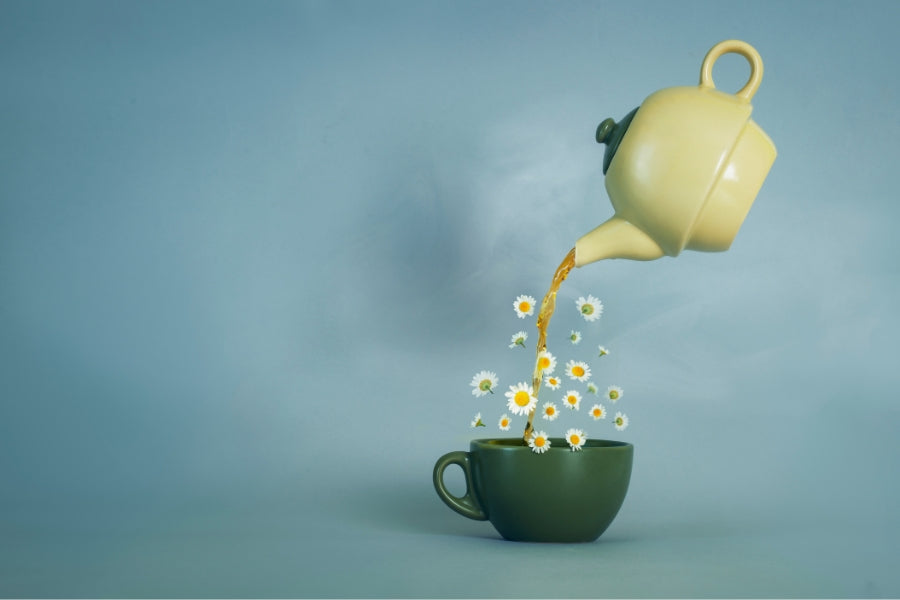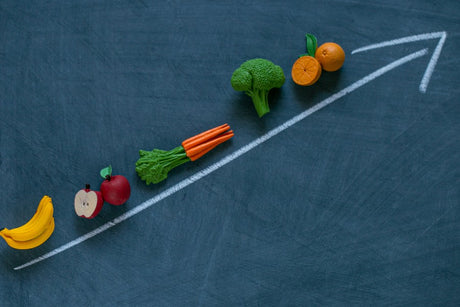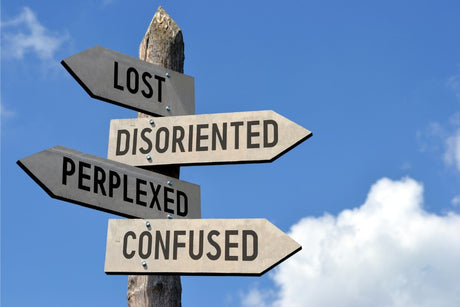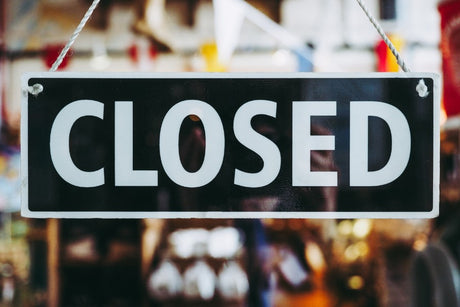Forty years ago, my father was arranging the street sign for Mum's new cafe.
The Upstairs Coffee Lounge was located on the building's first floor on Nelson Street, Wallsend, NSW.
Despite Dad's concerns about setting up a cafe "hidden" from the street, Mum was a hospitality professional, having worked for 15 years in busy RSLs and Clubs around Newcastle.
As young kids often do, I asked Dad a series of rapid questions on our way to the sign writers.
"Dad, why is Mum calling it the Upstairs Coffee Lounge when she only drinks tea?"
"Because it will be a coffee place, son", Dad replied.
"But Dad, she drinks tea, and so do all of the other ladies that come to our house to talk to Mum", I responded to him.
I can't recall if Dad had the right answers at the time or if we got distracted with something else; however, after all these years, I still find this same question often bouncing around inside my brain.
Why is it that so few people make a fuss about tea?
It's the most widely consumed beverage on the planet after water; more than 3 Billion cups of tea are prepared daily from more than 3,000 different varieties.
Mentioning coffee can spark strong opinions, divided preferences, and even controversy.
For some people afflicted by the coffee passion bug, the brown bean has become the bell weather of their life - visit coffee forums and discover some of the most extreme humans on the planet.
These coffee enthusiasts exist with precise morning rituals rivalling military college procedures.
Some spend hours and hours cleaning the coffee stations or tinker with their equipment for ages, hoping to extract that last 1% of improvement or efficiency from their beloved and sacred toys.
Yet there seem to be no such feverish fan clubs in the universe of teas.
Where are the passionate local/global campaigners beating their chests, and where are the cult followings that often make headlines and generate huge amounts of publicity?
In Australia, for a long time up until a few years ago, there were just a small handful of players that serviced the quality tea market.
A few local providers serviced the market, while a large boutique provider traded in major shopping centres.
This starkly contrasts the coffee industry, where over 1,500 brands compete for customers.
In last month's newsletter, I mentioned that the marketing of coffee had reached a rather sad and disappointing level of deception and brinkmanship, and it all was from too much competition.
What we see in the press is just a fraction of what transpires daily in real life. Coffee companies are waging war-like campaigns on their perceived competitors in revenge raids intended to steal customers from each other - you stole mine so that I will steal yours.
The coffee landscape needs help identifying the next wave of innovation.
Over the last five years, the pace of improvement has run at such velocity that the whole industry has hit a wall and asked, "OK, what do we do next ?".
The quality of the product at the roasting level has reached a plateau, and the differences in real terms between suppliers are barely discernable on any given day.
The next wave has to be how the distribution preserves quality and how the bean is brewed or extracted.
So, I keep returning to the start of that 40-year circle again - why isn't tea sexy - is it boring, or does nobody care?
It may be because brewing or steeping tea is far simpler and, to a large degree, somewhat foolproof compared to the brain-surgeon skills needed to extract perfect espresso coffee and texture milk.
Maybe it's because of the greater impact or effect of the caffeine from coffee upon the body that creates such an inspired "high".
There is a legal drug that functions similarly to illegal drugs in some ways.
Many teas have a calming effect, so is that sufficient grounds to relegate them to the boring and un-noticed corner?
If we look at our company history, mycuppa was originally conceived as a beverage company focused equally upon coffee and tea, yet somehow, along the journey of business life, we spent 98% of our time on coffee and 2% on tea.
The reasons are pretty self-evident - coffee is a damn tough gig. It's quite the struggle, seven days a week sourcing, roasting, maintaining freshness, constantly improving quality, extensive infrastructure changes, never-ending capital expenditure and those pesky competitors always stealing your customers.
We ventured into premium teas six years ago with various quality organic offerings.
In hindsight, while those teas were of the highest quality then, they were poorly marketed and needed to receive more attention.
In 2016, we broadened our range of teas and revised the offers to make these products attractive, just like our successful coffees in terms of quality and value.
Most tea suppliers use contract 3rd party logistics providers or contract packers to store and distribute their products via low-cost scale services.
This creates a significant quality issue that most tea merchants must pay more attention to.
The teas are stored in basic warehouses and exposed to temperatures up to 50°C, often on high racks.
Heat rapidly accelerates the dehydration and oxidization of plant-based products, resulting in quality degradation.
Just a few warm days can mean a loss of 5+ in quality scores; over a season, the actual drop in quality can exceed 25%.
At mycuppa, we do things differently by maintaining our stock in our warehouse under temperature-controlled insulated rooms.
Like the extreme measures we take to produce the best coffees, we do the same with teas - all part of our key difference.
See the new range of teas here.













